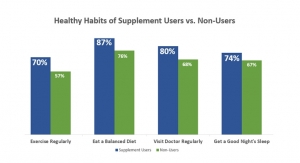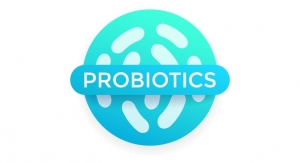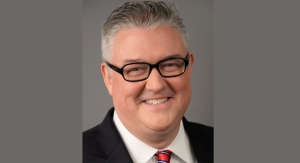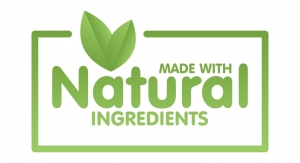12.13.18
U.S. Food and Drug Administration (FDA) Commissioner Scott Gottlieb, MD, unveiled the formation of a Dietary Supplement Working Group, which aims to better regulate the growing dietary supplement space.
In comments made on Dec. 12, Dr. Gottlieb, discussed the rapid expansion of the dietary supplement industry within the last 25 years, and the challenges it has presented. “What was once a $4 billion industry of about 400 products is now an industry of over $40 billion and more than 50,000 products,” he said. “And while much of this industry is responsible to consumers and the public health, there are also too many bad actors who are not.”
Dr. Gottlieb suggested that with this rapid expansion came opportunities and risks for both the industry and consumers. “I’m concerned that the industry has gotten bigger and riskier faster than our policies and our capacity to manage this risk. That needs to change. And so we plan on advancing new policies that will improve our oversight in this space.”
He said the newly formed Dietary Supplement Working Group would “take a hard look at what more the FDA can be doing within our existing authorities, including re-examining our own internal operating structure and procedures—and what new authorities might make sense.” Dr. Gottlieb added that FDA is developing some new policy measures aimed at modernizing the agency’s approach to regulating dietary supplements.
CRN ‘Applauds’ FDA’s Efforts
Commenting on Dr. Gottlieb’s remarks, Steve Mister, president & CEO for the Council for Responsible Nutrition (CRN), said the trade association welcomes this new initiative by FDA. Mr. Mister agreed that “the dietary supplement industry has grown tremendously since the enactment of the Dietary Supplement Health & Education Act (DSHEA) in 1994 due to the emerging science that further supports the health benefits of these products and the continued growth in consumers’ interest to take more active roles in their health and wellness.” He said CRN looks “forward to learning more about the recommendations of FDA’s Dietary Supplement Working Group and to working with the agency in evaluating these approaches.”
CRN applauded the increased regulatory action against bad actors in the industry since Dr. Gottlieb’s arrival to FDA, as well as “the implementation of the Program Alignment initiative to make FDA inspectors stronger experts in the product facilities they inspect, and a willingness to work with the industry on Supplement Facts label changes.”
Mr. Mister called the periodic re-evaluation of FDA’s regulatory tools and procedures “appropriate,” adding that CRN has “encouraged FDA to engage in more enforcement and to make use of the Supplement OWL, the dietary supplement industry’s online registry of products that provides the agency with new transparency.”
Meanwhile, CRN said it will review any new proposals from the Dietary Supplement Working Group “through the lens of DSHEA and the critical balance it strikes to protect public health while assuring consumer access to a wide range of healthful and safe products marketed as dietary supplements.”
NPA Asks to Participate
The Natural Products Association (NPA) responded to the announcement of the Dietary Supplement Working Group by asking to join in the agency’s efforts.
“While we share the commissioner’s concerns and hope FDA gets serious about bad actors who illegally sell drugs under a dietary supplement label or make false claims, we disagree with his suggestion that more or different rules are needed or that the industry’s outstanding safety record has changed,” said Daniel Fabricant, PhD, president and CEO of NPA. “We’ve urged FDA to get tougher on bad actors and we hope they do that, but in the meantime, they should also lead the discussion on new areas like cannabidiol (CBD) and other promising natural products, not playing catch-up.”
NPA stated that it has met 11 times with FDA or HHS in 2018: Jan. 30, Feb. 13, March 14, Apr. 20, June 20, June 27, July 11, July 19, Nov. 2, Nov. 15 (HHS) and Nov 15 (FDA).
“NPA does disagree with the Commissioner’s characterization that the supplement industry is riskier. Dietary supplements remain the only food commodity for which there is a mandatory reporting requirement for serious adverse events (SAER’s),” said Dr. Fabricant. “The latest SAERs for supplements are still very low; consistent with prior years and still pale in comparison to prescription drugs. NPA is pleased FDA appears poised to act on our repeated calls for stronger enforcement and is eager to participate in the new working group to make sure Americans have continued access to safe, natural, and affordable supplements and natural products. NPA looks forward to working with HHS and the Agency in the future.”
NPA called SAERs “a reliable source for tracking undesirable experiences associated with the use of FDA regulated products, including dietary supplements.”
In comments made on Dec. 12, Dr. Gottlieb, discussed the rapid expansion of the dietary supplement industry within the last 25 years, and the challenges it has presented. “What was once a $4 billion industry of about 400 products is now an industry of over $40 billion and more than 50,000 products,” he said. “And while much of this industry is responsible to consumers and the public health, there are also too many bad actors who are not.”
Dr. Gottlieb suggested that with this rapid expansion came opportunities and risks for both the industry and consumers. “I’m concerned that the industry has gotten bigger and riskier faster than our policies and our capacity to manage this risk. That needs to change. And so we plan on advancing new policies that will improve our oversight in this space.”
He said the newly formed Dietary Supplement Working Group would “take a hard look at what more the FDA can be doing within our existing authorities, including re-examining our own internal operating structure and procedures—and what new authorities might make sense.” Dr. Gottlieb added that FDA is developing some new policy measures aimed at modernizing the agency’s approach to regulating dietary supplements.
CRN ‘Applauds’ FDA’s Efforts
Commenting on Dr. Gottlieb’s remarks, Steve Mister, president & CEO for the Council for Responsible Nutrition (CRN), said the trade association welcomes this new initiative by FDA. Mr. Mister agreed that “the dietary supplement industry has grown tremendously since the enactment of the Dietary Supplement Health & Education Act (DSHEA) in 1994 due to the emerging science that further supports the health benefits of these products and the continued growth in consumers’ interest to take more active roles in their health and wellness.” He said CRN looks “forward to learning more about the recommendations of FDA’s Dietary Supplement Working Group and to working with the agency in evaluating these approaches.”
CRN applauded the increased regulatory action against bad actors in the industry since Dr. Gottlieb’s arrival to FDA, as well as “the implementation of the Program Alignment initiative to make FDA inspectors stronger experts in the product facilities they inspect, and a willingness to work with the industry on Supplement Facts label changes.”
Mr. Mister called the periodic re-evaluation of FDA’s regulatory tools and procedures “appropriate,” adding that CRN has “encouraged FDA to engage in more enforcement and to make use of the Supplement OWL, the dietary supplement industry’s online registry of products that provides the agency with new transparency.”
Meanwhile, CRN said it will review any new proposals from the Dietary Supplement Working Group “through the lens of DSHEA and the critical balance it strikes to protect public health while assuring consumer access to a wide range of healthful and safe products marketed as dietary supplements.”
NPA Asks to Participate
The Natural Products Association (NPA) responded to the announcement of the Dietary Supplement Working Group by asking to join in the agency’s efforts.
“While we share the commissioner’s concerns and hope FDA gets serious about bad actors who illegally sell drugs under a dietary supplement label or make false claims, we disagree with his suggestion that more or different rules are needed or that the industry’s outstanding safety record has changed,” said Daniel Fabricant, PhD, president and CEO of NPA. “We’ve urged FDA to get tougher on bad actors and we hope they do that, but in the meantime, they should also lead the discussion on new areas like cannabidiol (CBD) and other promising natural products, not playing catch-up.”
NPA stated that it has met 11 times with FDA or HHS in 2018: Jan. 30, Feb. 13, March 14, Apr. 20, June 20, June 27, July 11, July 19, Nov. 2, Nov. 15 (HHS) and Nov 15 (FDA).
“NPA does disagree with the Commissioner’s characterization that the supplement industry is riskier. Dietary supplements remain the only food commodity for which there is a mandatory reporting requirement for serious adverse events (SAER’s),” said Dr. Fabricant. “The latest SAERs for supplements are still very low; consistent with prior years and still pale in comparison to prescription drugs. NPA is pleased FDA appears poised to act on our repeated calls for stronger enforcement and is eager to participate in the new working group to make sure Americans have continued access to safe, natural, and affordable supplements and natural products. NPA looks forward to working with HHS and the Agency in the future.”
NPA called SAERs “a reliable source for tracking undesirable experiences associated with the use of FDA regulated products, including dietary supplements.”

























